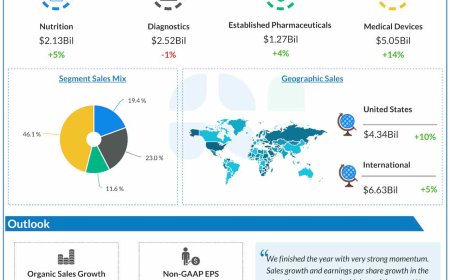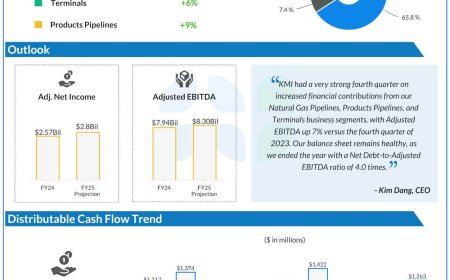Why Diversity, Equity, and Inclusion Are Key to Business Success—and How Connected Technologies Can Help
Companies with diverse teams consistently outperform their homogeneous counterparts in innovation metrics. When people from varied backgrounds collaborate, they bring distinct approaches to problem-solving, leading to more creative solutions. Different cultural perspectives and experiences generate unique ideas that drive product development and service improvements. Incorporating IoT technologies, such as smart data collection and interconnected devices, ... The post Why Diversity, Equity, and Inclusion Are Key to Business Success—and How Connected Technologies Can Help appeared first on IoT Business News.



Companies with diverse teams consistently outperform their homogeneous counterparts in innovation metrics. When people from varied backgrounds collaborate, they bring distinct approaches to problem-solving, leading to more creative solutions. Different cultural perspectives and experiences generate unique ideas that drive product development and service improvements. Incorporating IoT technologies, such as smart data collection and interconnected devices, allows diverse teams to analyze real-time insights, enhancing their ability to innovate and adapt solutions to emerging trends.
Enhanced Decision-Making and Risk Management
Diverse teams make better decisions compared to individual decision-makers or homogeneous groups. Different perspectives help identify potential risks and opportunities that might otherwise go unnoticed. Teams with varied backgrounds are more likely to question assumptions, leading to more thorough analysis and reduced groupthink. For instance, IoT sensors can identify subtle patterns in market trends or operational inefficiencies, which diverse teams are uniquely positioned to interpret and act upon effectively.
Market Understanding and Customer Connection
Organizations that reflect their customer base better understand and serve their markets. Companies with diverse workforces gain authentic insights into different cultural nuances, preferences, and needs. This deep market understanding translates into more effective product development, marketing strategies, and customer service approaches. Using IoT-enabled tools, such as wearable technology or smart home devices, companies can gather behavioral data that provides actionable insights into customer preferences, further enabling diverse teams to tailor solutions for maximum impact.
Talent Acquisition and Retention
Progressive DEI practices significantly impact an organization’s ability to attract and retain top talent. Younger generations particularly value workplace diversity when evaluating potential employers. Companies implementing inclusive hiring tips and practices often see a broader, more qualified candidate pool and improved employee retention rates. IoT and AI-driven platforms can streamline hiring processes by eliminating unconscious bias in resume screening and optimizing job matching based on skills and experience.
Financial Performance and Competitive Advantage
Organizations that prioritize diversity consistently demonstrate stronger financial performance. Investing in DEI initiatives helps improve market share, increase innovation revenue, and generate better overall business outcomes compared to their competitors who don’t prioritize these values. Data analytics can highlight emerging market segments, enabling diverse teams to craft innovative strategies that deliver financial gains.
Employee Engagement and Productivity
Inclusive workplaces foster higher employee engagement levels. When people feel valued and respected for their unique contributions, they demonstrate greater commitment and productivity. Organizations with strong DEI initiatives report lower turnover rates and higher employee satisfaction. Connected workplace tools, such as smart scheduling and real-time feedback platforms, enhance employee experiences by aligning tasks with individual strengths and preferences.
Global Market Expansion
Organizations with diverse teams navigate international markets more effectively. Multilingual employees and cultural awareness facilitate smoother business expansions, negotiations, and partnerships across borders. This global competency becomes increasingly crucial as markets become more interconnected. Connected applications, like supply chain monitoring and language translation devices, further empower diverse teams to manage international operations with precision and efficiency.
Innovation in Product Development
Diverse teams develop products and services that better serve a wider range of customers. Different perspectives lead to more inclusive design thinking, resulting in products that address previously overlooked market needs and opportunities. IoT-enabled prototyping tools and customer feedback loops allow diverse teams to refine products rapidly, ensuring they meet a broad spectrum of user needs.
Building Strong Community Relations
Companies committed to DEI build stronger relationships with their communities. These organizations better understand local needs, create meaningful partnerships, and develop authentic connections with diverse stakeholder groups. This community engagement often leads to increased brand loyalty and trust. IoT solutions, such as environmental monitoring systems, enable companies to align with community sustainability goals, fostering deeper connections with local stakeholders.
Long-term Sustainability
Organizations embracing DEI principles position themselves for long-term success. As demographics continue to shift and markets become more global, companies with strong diversity practices adapt more effectively to change. These organizations create sustainable business models that remain relevant and competitive in an evolving business landscape.
Leadership Development and Succession Planning
Diverse organizations create stronger leadership pipelines. By acquiring talent from various backgrounds, companies ensure their future leaders bring different perspectives and experiences to strategic decision-making. This diversity in leadership strengthens organizational resilience and adaptability. Smart platforms that track and analyze workforce development metrics can help identify emerging leaders from diverse backgrounds, ensuring robust succession planning.
Creating an Inclusive Company Culture
When organizations prioritize DEI, they foster workplace cultures where all employees can thrive. This inclusive environment encourages open communication, collaboration, and innovation. Employees feel more comfortable sharing ideas, taking calculated risks, and contributing their unique perspectives to organizational success. Connected collaboration tools, such as virtual reality meeting spaces, ensure every voice is heard, regardless of physical location or cultural differences.
The post Why Diversity, Equity, and Inclusion Are Key to Business Success—and How Connected Technologies Can Help appeared first on IoT Business News.











































